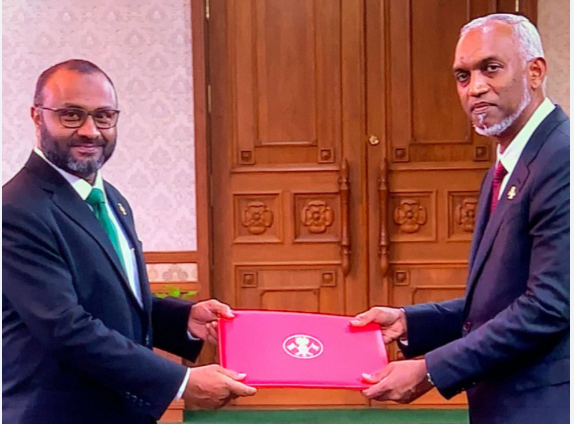NEW DELHI — Extradition treaties are meant to be straightforward instruments of international law: a country requests, another complies. Yet Bangladesh’s demand that India hand over former Prime Minister Sheikh Hasina has made the process anything but simple. New Delhi now faces a test that goes beyond legal obligation, touching on morality, human rights, and its role as a regional power.
Extradition treaties bind states to hand over fugitives, but they are rarely absolute. Most include exceptions for political offenses, or when the accused faces torture or capital punishment. These clauses are not loopholes; they are safeguards designed to prevent treaties from becoming tools of persecution.
That means requests are often contested. To comply without scrutiny would be to ignore the very protections international law insists upon. For India, the question is whether it should honour the letter of the law or invoke the spirit of justice.
India has long sought to project itself as a democratic leader in South Asia. That aspiration carries moral weight. If New Delhi were to extradite Sheikh Hasina — Bangladesh’s former prime minister, now facing charges that critics say are politically motivated — it would be seen as honouring treaty obligations. But it could also be read as complicity in a process that may lack fairness.
Refusing, on the other hand, would signal moral leadership, though at the cost of diplomatic friction. To act as a beacon means more than following the law; it means setting a precedent that human rights matter as much as treaties.
India is not alone in facing such dilemmas. In Britain, the case of Augusto Pinochet in the late 1990s forced courts to weigh crimes against humanity against the protections of sovereign immunity. Spain had sought the extradition of Chile’s former dictator, and the British judiciary wrestled with whether international law could override the traditional shield of a head of state. The case revealed how extradition can become a crucible for moral judgment, even when treaties appear binding.
More recently, the drawn-out battle over Julian Assange’s extradition to the United States has underscored similar tensions. British courts have repeatedly scrutinized the request, citing concerns about press freedom and prison conditions. The Assange case illustrates that treaties do not eliminate moral judgment; they invite it, forcing states to balance obligations against broader principles of justice.
Together, these precedents highlight a broader truth: extradition is not automatic. It is contested, debated, and reframed in light of ethical and political concerns.
Closer to home, the Maldives faced its own test in 2019 when former vice president Ahmed Adeeb attempted to enter India illegally by boat. New Delhi swiftly deported him, citing immigration violations.
That episode was not a formal extradition — Adeeb had no legal entry — but it underscored how governments sometimes sidestep thorny moral questions by invoking technical grounds. India avoided a deeper debate by treating the case as a matter of border control rather than treaty obligation. The Adeeb case shows how states can use procedural shortcuts to avoid confronting the moral weight of extradition.
Sheikh Hasina’s case is different. Unlike Adeeb, she is not a fugitive slipping across borders illegally. She is a former head of government; a figure whose fate carries enormous symbolic weight for Bangladesh’s political trajectory. Extraditing her would not be a technical matter; it would be a statement.
For India, the stakes are profound. Handing Hasina over could be seen as siding with Bangladesh’s unelected authorities, a government critics argue is pursuing a campaign of political retribution rather than justice. It would risk tarnishing India’s image as a democratic leader and raise questions about its commitment to human rights. Refusing extradition, however, would invite accusations of sheltering fugitives and could strain bilateral ties.
Legal scholars often describe extradition as a space where law meets politics. States act not only on treaties but on calculation: the stability of the region, the optics of compliance, the risks of defiance.
Human rights law adds another layer. Extradition to face capital punishment is widely contested under international norms. European states, for example, routinely refuse extradition if the death penalty is possible. For India, the decision will be judged not only by its neighbours but by the wider international community.
India’s choice will shape how the region views its role. To comply with an extradition request from Bangladesh’s unelected authorities, without contest, would signal fidelity to agreements but risk moral criticism and the perception of siding with a government whose legitimacy is disputed. To refuse would signal moral leadership but invite accusations of harbouring fugitives.
Either way, the decision will reverberate beyond the courtroom. It will speak to India’s identity: as a neutral enforcer of rules, or as a country willing to contest them in the name of justice.
Extradition is never just about law. It is about morality, politics, and the image a country projects to the world. India’s dilemma is not unique, but it is consequential. To act as a beacon means more than following treaties; it means weighing justice against obligation and choosing which legacy to leave behind.












